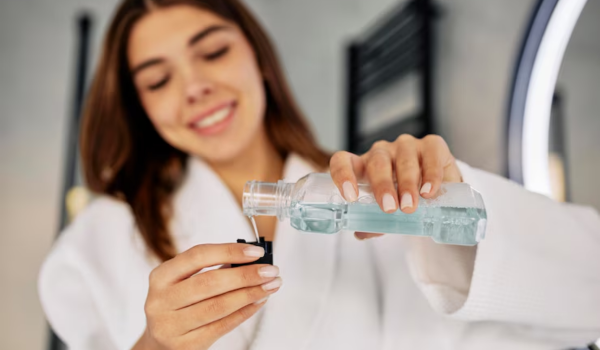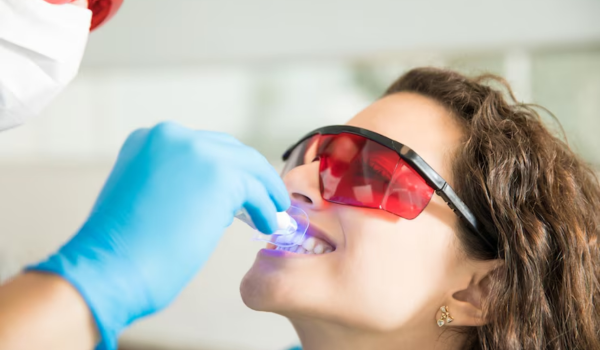Hydrogen Peroxide for Teeth Whitening: Safe & Effective Guide
Hydrogen Peroxide for Teeth Whitening: The Ultimate Guide to a Brighter Smile

In today’s appearance-conscious world, having a bright, white smile has become more than just a cosmetic desire; it’s a symbol of confidence, health, and success.
Among the many methods available for teeth whitening, hydrogen peroxide stands out as one of the most trusted and scientifically proven agents.
If you’ve ever wondered whether this household chemical is truly effective or safe when it comes to teeth whitening, you’re in the right place.
In this in-depth guide, we explore everything you need to know about hydrogen peroxide for teeth whitening, from how it works and its safety profile, to DIY methods, professional options, pros and cons, and frequently asked questions. Let’s dive in and illuminate your path to a brighter smile.
Introduction: Why Whiten Teeth?
Teeth naturally darken over time due to age, lifestyle, and dietary habits. From coffee and tea to red wine and tobacco, many substances can leave lasting stains on our enamel.
A brighter smile can boost self-esteem, improve first impressions, and even enhance your mood. It’s no surprise then that teeth whitening has become a multi-billion-dollar industry globally.
But not all whitening products are created equal. Among the wide array of options, hydrogen peroxide-based treatments have gained popularity for their proven effectiveness and relatively low cost.
What is Hydrogen Peroxide?
Hydrogen peroxide (H₂O₂) is a chemical compound composed of hydrogen and oxygen. It is a clear, slightly viscous liquid with strong oxidizing properties, commonly used for disinfection, wound care, and yes teeth whitening.
In dental products, hydrogen peroxide serves as a bleaching agent. When it comes into contact with the surface of your teeth, it breaks down into water and oxygen.
The oxygen penetrates the porous enamel and reacts with the pigment molecules responsible for discoloration, effectively breaking them down and lifting stains.
How Hydrogen Peroxide Works to Whiten Teeth?
Teeth have a natural, slightly porous outer layer called enamel, beneath which lies dentin, a softer, yellow-hued layer.
Over time, pigmented molecules from food, drinks, and other substances accumulate on and within the enamel. These molecules cause the yellowing or darkening of teeth.
Hydrogen peroxide’s whitening power comes from its ability to:
- Oxidize stain molecules (through free radical production).
- Penetrate enamel and dentin to reach deeper stains.
- Break down chromophores (colored compounds) into smaller, colorless molecules.
This chemical reaction doesn’t just remove surface stains it alters the internal color of the tooth, making it one of the most effective whitening methods available.
Types of Hydrogen Peroxide Whitening Products
There are multiple forms of teeth whitening products containing hydrogen peroxide. The concentration and application method vary depending on the product type:
1. Whitening Strips
These thin, flexible plastic strips are coated with a gel containing hydrogen peroxide (usually around 6–10%). They’re designed to mold to the shape of your teeth and are worn for 20–60 minutes per session.
Pros:
- Convenient and easy to use
- Readily available over the counter
- Effective for mild to moderate stains
2. Whitening Gels and Trays
This method involves filling a mouth tray with hydrogen peroxide gel and wearing it for a prescribed amount of time.
Pros:
- More even coverage
- Often more potent than strips
- Available in both over-the-counter and professional versions
3. Whitening Pens
These pens allow you to “paint” the gel onto specific teeth.
Pros:
- Targeted application
- Ideal for touch-ups
4. Whitening Toothpaste
These typically contain low concentrations of hydrogen peroxide (below 1%) and are more effective at preventing stains than removing deep discoloration.
5. In-Office Professional Treatments
Dental offices offer treatments with concentrations of 15–40% hydrogen peroxide, sometimes activated by special lights or lasers.
Pros:
- Fast and dramatic results
- Performed under professional supervision

At-Home Whitening vs. Professional Whitening
| Feature | At-Home Whitening | Professional Whitening |
| Hydrogen Peroxide Strength | 3%–10% | 15%–40% |
| Cost | $20–$100 | $300–$1,000 |
| Speed | Gradual (1–2 weeks) | Immediate (1–2 hours) |
| Safety Monitoring | Self-administered | Dentist-supervised |
| Risk of Sensitivity | Moderate | Controlled risk, but possible |
If you’re looking for quick, visible results, professional whitening might be your best bet. For budget-friendly, gradual whitening, at-home kits are an excellent option.
How to Use Hydrogen Peroxide Safely at Home?
To minimize risk while maximizing results, follow these best practices:
- Choose a Reputable Product: Look for ADA-approved whitening products.
- Use the Right Concentration: 3–6% is generally safe for home use.
- Follow Instructions Carefully: Overuse can damage enamel and gums.
- Limit Frequency: Don’t use peroxide-based whiteners more than 1–2 times a year unless advised by your dentist.
- Avoid Swallowing: Hydrogen peroxide should never be ingested.
- Consult Your Dentist: Especially if you have sensitive teeth, cavities, or gum disease.
Benefits of Hydrogen Peroxide Teeth Whitening
- Proven Efficacy: Numerous studies show significant whitening with hydrogen peroxide.
- Affordability: More cost-effective than veneers or other cosmetic dental procedures.
- Customizable Options: Available in varying strengths and formats.
- Accessibility: Easily available in stores and online.
- Speed: Results can be noticeable in as little as one application (especially professionally).
Risks and Side Effects
Despite its popularity, hydrogen peroxide is not without potential downsides. Here’s what to watch for:
1. Tooth Sensitivity
- A common side effect caused by peroxide penetrating the enamel and reaching nerve endings in the dentin.
Prevention: Use desensitizing toothpaste before and after treatment.
2. Gum Irritation
- Occurs if the gel or strip contacts your gums for too long or in high concentrations.
Prevention: Use custom trays and avoid overfilling them.
3. Enamel Damage (with Misuse)
- Overuse or high concentrations can weaken enamel over time.
Prevention: Stick to recommended usage frequency and strength.
Debunking Common Myths
Myth: Hydrogen Peroxide is Dangerous for Teeth
Truth: When used correctly and in proper concentrations, hydrogen peroxide is safe and effective.
Myth: You Can Use Household Hydrogen Peroxide on Your Teeth
Truth: Pharmacy-grade hydrogen peroxide (3%) is not formulated for dental use and should not be used without dilution and proper guidance.
Myth: Whitening Damages Your Teeth Permanently
Truth: Hydrogen peroxide can cause temporary sensitivity but does not permanently damage enamel if used as directed.
Natural Alternatives: Are They Effective?
Some people prefer natural whitening methods, including:
- Baking soda
- Activated charcoal
- Coconut oil pulling
- Strawberries or apple cider vinegar
Reality Check: These methods lack the strong oxidizing power of hydrogen peroxide and often yield minimal, temporary results. Some (like vinegar or lemon juice) can actually harm enamel.

How to Maintain Your Whitened Smile
Once you’ve achieved your desired whiteness, it’s important to protect your investment.
Do:
- Brush twice daily with whitening toothpaste.
- Rinse after drinking staining beverages.
- Drink water regularly.
- Visit your dentist for cleanings.
Avoid:
- Smoking
- Excessive coffee, tea, red wine
- Sugary, acidic foods
Consider using a whitening touch-up pen once a week to maintain brightness.
Frequently Asked Questions
How long do the results last?
- With proper care, results can last 6–12 months, depending on lifestyle.
Can I use hydrogen peroxide every day?
- A: No. Overuse can lead to sensitivity and enamel wear. Limit to recommended cycles.
Is it safe for kids or teens?
- Generally not recommended for individuals under 13, as their teeth and gums are still developing.
Can it whiten crowns or veneers?
- No. Hydrogen peroxide only works on natural tooth enamel.
What should I do if I experience sensitivity?
- Pause treatment for a few days and use a desensitizing toothpaste. Consult your dentist if the problem persists.
Conclusion
Hydrogen peroxide remains one of the most effective, accessible, and scientifically validated methods for whitening teeth.
Whether you’re using over-the-counter products like whitening strips or opting for a professional in-office treatment, hydrogen peroxide offers real results by breaking down deep-set stains and restoring your teeth’s natural brightness.
However, like any treatment, it must be used responsibly. Choosing the right concentration, following product directions, and being aware of your oral health condition are all critical to ensuring safety and effectiveness.
While occasional sensitivity or gum irritation can occur, these side effects are generally mild and manageable especially with professional guidance.
Ultimately, if you’re looking for a proven, cost-effective, and convenient way to brighten your smile, hydrogen peroxide is a smart choice.
.